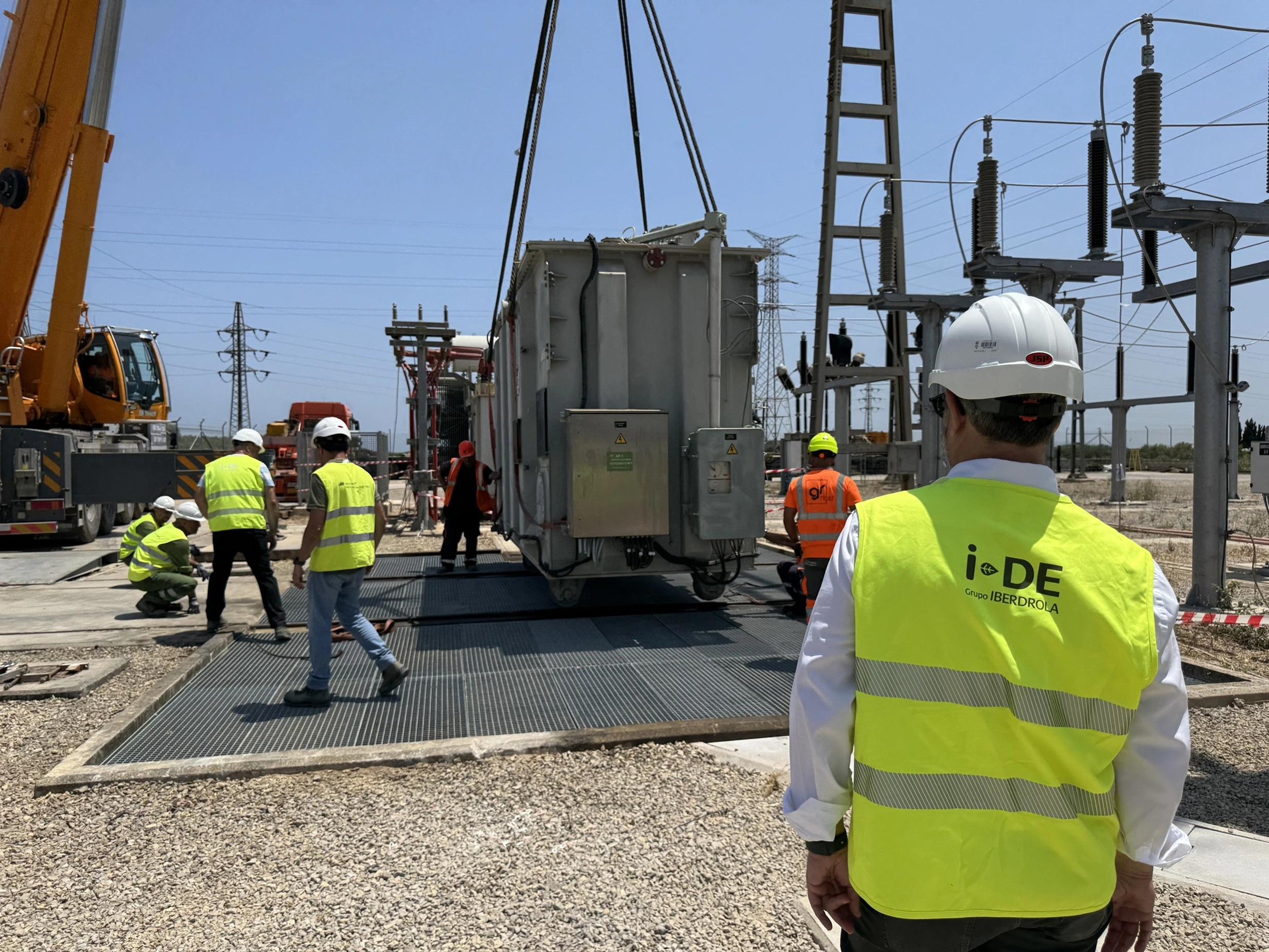Iberdrola España has completed 70% of the project to redesign the grid affected by the cold drop
- The company is investing €100M in the il·lumina plan to build the grid of the future in the area
- More than 450 transformer stations have been renovated, more than 300 medium-voltage line supports built, and work is underway on around 20 substations
- The new infrastructure incorporates resilience measures and the latest digitalisation standards, which will benefit 650,000 users

Installation of transformation substation in Silla
Iberdrola España has completed 70% of the il·lumina plan in which the company, through its distribution company i-DE, is investing €100M to redesign the electrical grid affected by the cold drop.
During the months work has been carried out, 450 transformer stations were cleaned and renovated, and more than 300 medium-voltage pylons that were affected by the accumulation of mud and the force of the water from the flooding were rebuilt.
Work was carried out at the twenty or so substations in the municipalities affected by the cold drop. At those located in the industrial estates of Quart de Poblet and Riba-roja, the ground was raised by more than 1.5 metres and compacted infrastructure is being installed.
The company's investment in the new facilities is enabling the incorporation of resilience measures through changes in infrastructure design, as well as the use of the latest digitalisation standards, which will benefit more than 650,000 users by providing a more robust grid that is better prepared for possible future adverse events.
For Ignacio García Bosch, head of the il·lumina plan, ‘despite the project’s complexity and demands, the work is running according to schedule and we’re continuing with the objective of reaching 90% completion by the end of the year and finishing in 2026 to set up an electricity grid of the future in the area affected by the cold drop’.
Iberdrola España has created a specific team of 35 people who are working exclusively on the project, which involves the participation of approximately 1,000 people from contracting companies, the vast majority of whom are local.
The company is carrying out most of the work without cutting off supply to customers, implementing special measures such as installing generators to minimise disruption for those affected, as well as introducing improvements to its systems for notifying customers of scheduled outages.
Iberdrola España, all hands on deck with the cold drop
Iberdrola España was fully committed from the outset to restoring electricity after the cold drop, mobilising approximately 500 workers from both the Valencian Community and other regions of the country, which meant that in just over 72 hours practically everything was back to normal.
It signed an agreement with the Valencian Regional Government to partner with it, through FEMEVAL, sending teams of electricians to affected buildings and private homes to inspect and repair the affected connections, as well as working with local councils to restore public lighting.
Through its foundation in Spain, the company has also signed social partnership agreements with the Spanish Red Cross and Betania for mental health and psychosocial support projects, as well as to prevent the situation from seriously deteriorating and to help families and minors overcome the crisis they may find themselves in.
The Iberdrola Foundation is also participating, in collaboration with the Provincial Council of Valencia, in the project to rehabilitate the Catarroja School of Agricultural Foremen, which was affected by the cold drop and will require an investment of €4M.
At the local council level, it has also partnered with the council of Paiporta, where it financed the reconstruction of children's play areas in several parks and playgrounds in the town and where a new air conditioning system was also installed in the Rosa Serrano School. The electrical installation in the Municipal Market was upgraded as well.



